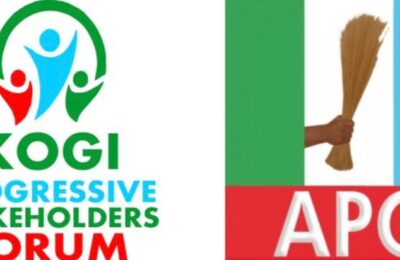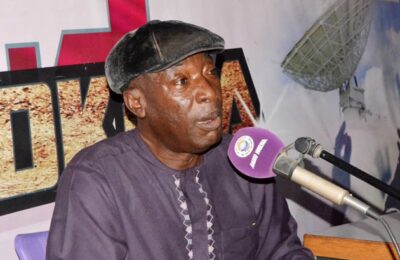By Musa Bakare.
Nigeria is one of the most richly endowed countries in the world. From oil and gas to vast arable land, from abundant human capital to a youthful, energetic population, the nation possesses all the ingredients for prosperity. More than six decades after independence however, and until the coming of President Bola Ahmed Tinubu in 2023, Nigeria remained trapped in cycles of poverty, political instability, and institutional decay.
This paradox can be explained by the theory of the Tragedy of the Commons. When shared resources are poorly managed, exploited selfishly, and left without accountability, they collapse, leaving the nation poorer than before.
This was the Nigerian story President Tinubu inherited in 2023: abundant resources squandered by greed, poor governance, and lack of collective discipline.
Nigeria was born in 1914 out of colonial convenience, not national consensus. The British amalgamated regions with distinct histories, cultures, and religions into one political entity without laying the groundwork for shared values or a unifying identity.
At independence in 1960, the new elite inherited a state apparatus but not a true nation. Instead of building a culture of collective responsibility, the ruling class entrenched ethnic, regional, and sectarian competition. The question was never how to grow the cake, but how to share it. This scramble converted the state into a site of plunder rather than development, feeding the tragedy of the common.
The commons in Nigeria are represented in our oil wealth, public institutions, revenues, and even the intangible trust of citizens. Instead of being nurtured as a collective inheritance, they have been exploited as spoils of power.
Oil revenue, once a platform for industrialization earnings were wasted through corruption, subsidies, and rent-seeking. Billions that could have built industries, roads, and schools disappeared into private pockets, leaving President Tinubu with the herculean task of subsidy removal.
Public offices became vehicles for private enrichment. Meritocracy was sacrificed on the altar of nepotism, and state institutions lost independence. Today, Tinubu is halting the status quo and the long-term beneficiaries of corruption are crying foul.
Citizens no longer believe promises because policies too often served elites, not the people. Trust, once broken, is the hardest resource to restore.
The result was predictable, poverty amidst plenty, infrastructural collapse, youth unemployment, insecurity, and waves of despair.
The tragedy of the common is not peculiar to Nigeria. Many nations faced similar crises but found ways to escape.
From a swampy trading post in the 1960s, Singapore became a global hub by enforcing discipline, merit, and strong institutions under Lee Kuan Yew.
Rising from genocide in 1994, Rwanda invested in social cohesion, rule of law, and accountability.
Blessed with oil like Nigeria, Norway avoided the resource curse by creating a sovereign wealth fund that preserved wealth for future generations.
Brazil, after economic collapse in the 1980s–1990s, recovered through painful reforms, cutting subsidies, stabilizing its currency, and strengthening social safety nets.
These examples show that crisis can be turned into an opportunity if leaders prioritize the common good over private gain.
Against this backdrop, President Tinubu represents a bold attempt to halt Nigeria’s decline. From his first day in office, he dismantled two major distortions that consumed the commons:
Fuel subsidy removal, an unsustainable drain swallowing trillions annually. and exchange rate unification, ending arbitrage that enriched a few while weakening the economy.
Other reforms soon followed, electricity tariff adjustments to reduce subsidy burdens, sweeping tax and fiscal reforms to expand revenues, cash transfers, wage awards, and student loan programs to cushion the poor.
There is also the Compressed Natural Gas (CNG) initiative to reduce transport costs and other major infrastructure projects, including the Lagos–Calabar Coastal Highway, to unlock growth.
These reforms mirror strategies used by nations that overcame crises: front-load the pain, stabilize the macro economy, and then build sustainable growth.
Many Nigerians disapprove of subsidy removal, feeling reforms punish the poor while sparing the elite. Labour unions have staged strikes, forcing the government to negotiate wage increases and concessions.
Here lies the central tension: reforms may be economically correct but politically fragile. If people perceive them as unfair or unbearable, they may resist, risking reversal and instability.
Nigeria can break the cycle, but only with deliberate choices now being offered by the Tinubu administration:
Protecting the vulnerable through cash transfers, wage awards, and school feeding, not as tokenism but timely, transparent, and well-targeted.
Strengthening institutions: insulating anti-corruption agencies, judiciary, and regulators from politics.
Communicating reforms clearly: explaining savings and showing visible results, cheaper buses, stable power, improved food supply.
Sharing the burden fairly: President Tinubu insists sacrifices cannot be demanded from citizens while leaders display waste, political elites must cut excesses.
Investing in the future: channeling savings from reforms into infrastructure, education, and health rather than recurrent waste.
As the 2027 presidential election approaches, Nigeria stands at a defining crossroads. If reforms succeed, the country may finally escape decades of squander and set itself on the path of sustainable development. If they fail, God forbid, the tragedy of the common will repeat itself, with even greater consequences.
The tragedy of the common teaches that shared resources collapse without discipline, leadership, and accountability. For Nigeria to survive and thrive, we must see the nation not as spoils to be shared, but as a heritage to be preserved.
The challenge before all Nigerians is whether they will allow the tragedy to continue, or whether we will summon the courage, sacrifice, and patriotism to continue to support President Tinubu to reverse it. History, and generations yet unborn, will judge our choice.
– Musa Asiru Bakare, Member of the APC and Political Analyst, writes from Lokoja, Kogi State.




